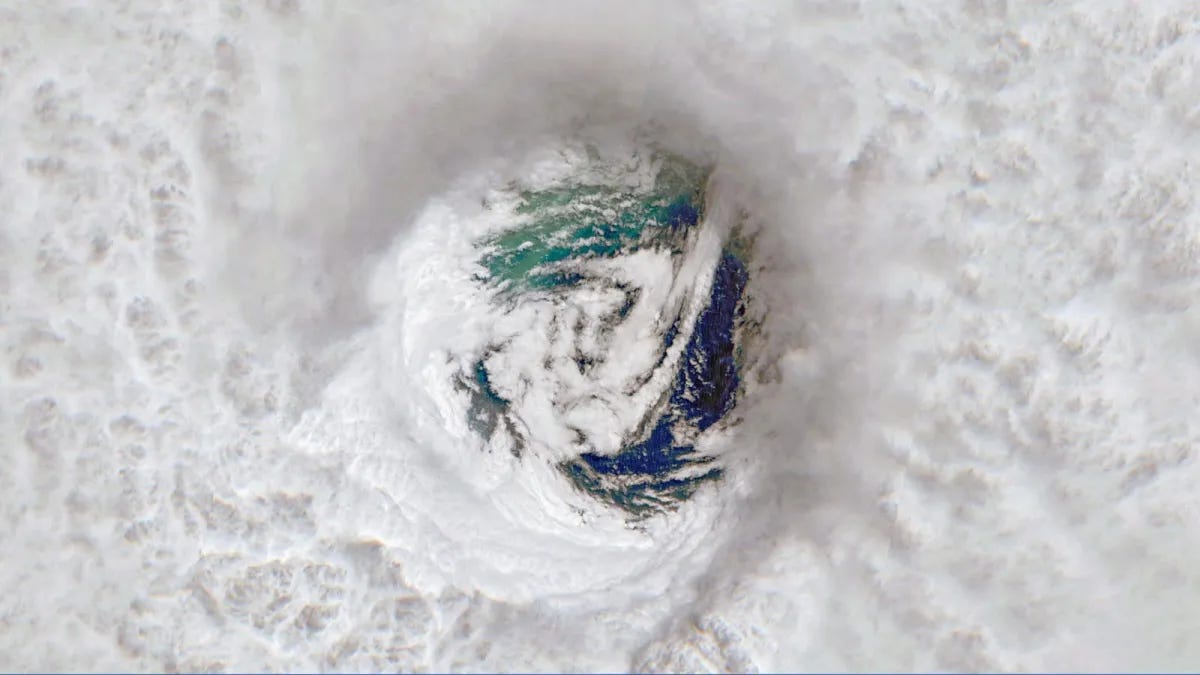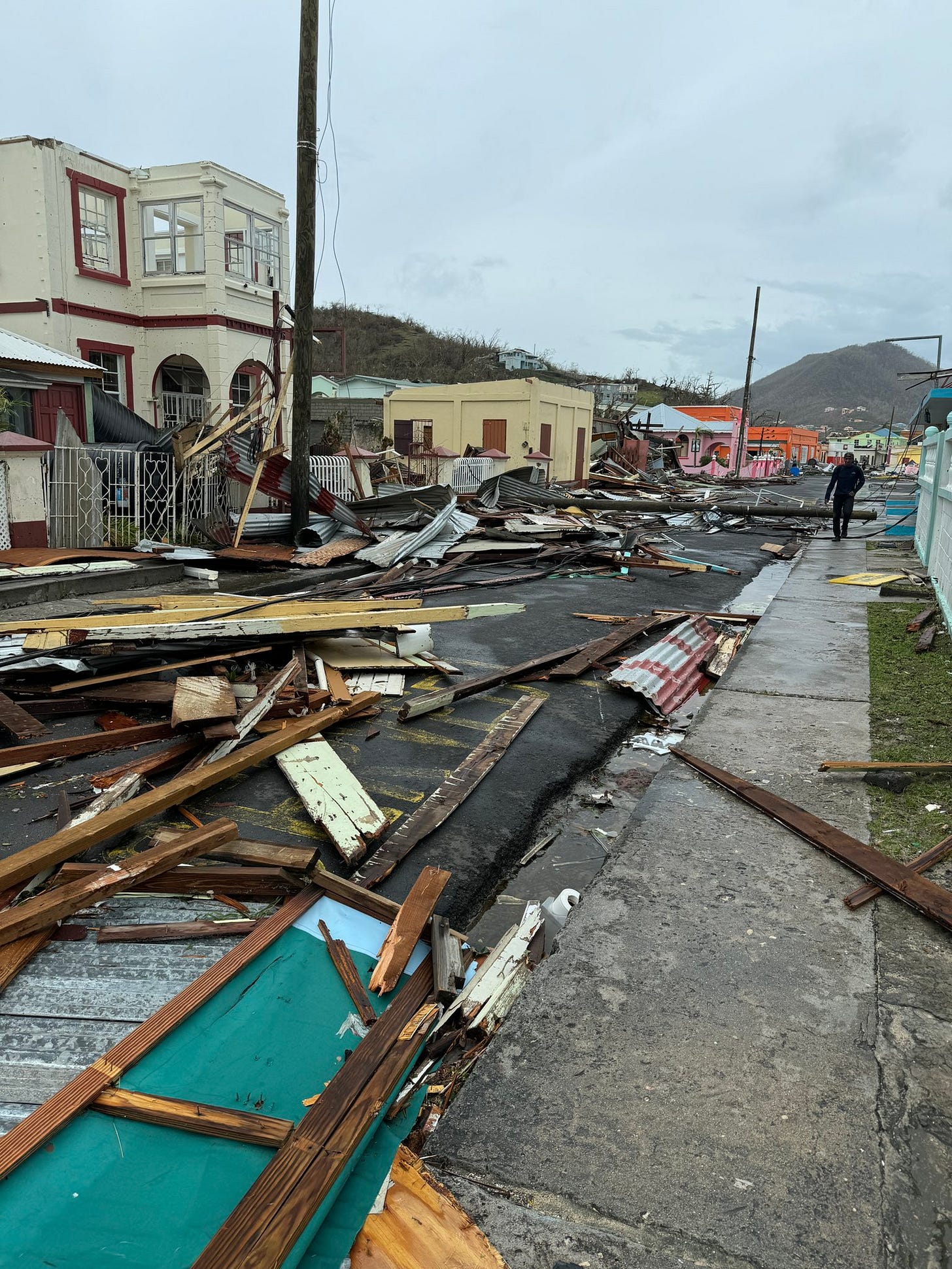The Peril of Beryl: Jamaica Braces for the Devastating Tropical Hurricane
Indian Cricket Team Departs Barbados Aboard a Chartered Air India Plane, after Hurricane Delay: ETA at Delhi 6:20AM IST on 4th July.

Hurricane Beryl: Unprecedented Early-Season Destruction
Hurricane Beryl, the earliest Category 5 storm on record in the Atlantic basin, has wreaked havoc across the Caribbean islands and is now headed towards Jamaica. The storm rapidly intensified from a depression to a Category 4 hurricane within just 48 hours, driven by exceptionally warm waters in the Atlantic and Caribbean regions, typically seen only in September. This early formation and rapid intensification result from elevated sea surface temperatures, reduced Atlantic currents, and the influence of La Niña, indicating an exceptionally active hurricane season with up to 25 named storms predicted. Beryl has already caused widespread devastation, killing at least six people, flattening 90% of homes on Carriacou island, a dependency of Grenada, and affecting 25,000 people in Venezuela.
Track the storm here, and watch a satellite time-lapse here (via X).
Jamaica on Tenterhooks
As Beryl approaches Jamaica, home to the famous cricket grounds— Sabina Park and Kensington Park— at Kingston, Prime Minister Andrew Holness has urged residents to prepare for life-threatening winds, heavy rainfall, and storm surges. Currently, at the time of publication is this article, it is located 125 miles to the east of Kingston. While the storm is expected to weaken as it moves across the Caribbean, it will likely remain dangerous as it approaches Mexico's Yucatan Peninsula. Experts note that the U.S. mainland may not face significant effects, but vigilance is advised along the Gulf Coast. The rapid intensification and early arrival of Beryl highlight the impact of climate change on hurricane activity, emphasizing the need for global action on fossil fuel emissions as the world confronts a potentially record-breaking hurricane season.

Trail of Destruction the Caribbean
Hurricane Beryl has already caused widespread devastation across the Caribbean. The storm has claimed at least six lives throughout the region. On Carriacou island in the Grenadines, 90% of homes have been flattened, leading to a dire humanitarian situation. In Grenada, three deaths have been reported, with another fatality in St. Vincent and the Grenadines. Northern Venezuela has also been heavily impacted, with two deaths and five people reported missing, while 25,000 people have been affected by the torrential rainfall. Prime Minister Dickon Mitchell of Grenada described the situation on Carriacou as catastrophic, noting that the island was "flattened" within 30 minutes of Beryl's landfall. The trail of destruction left by Beryl underscores the severity of this unprecedented early-season hurricane.
Indian Cricket Team Departs Barbados After Hurricane Delay
The T20 World Cup-winning Indian cricket team has finally departed from Bridgetown, Barbados, after being stranded for a few days due to Hurricane Beryl. The team left on Tuesday evening (local time) via a special chartered Air India flight, AIC24WC (Air India Champions 24 World Cup), arranged by the BCCI. The flight took off from Barbados around 4:50 AM local time on Wednesday and is expected to land in New Delhi on Thursday, July 4, at approximately 6:20 AM IST. Onboard the flight are the Indian cricketers, their families, coaching staff, some BCCI officials, and Indian media personnel who covered the tournament.
The team is currently mid-flight over the Atlantic Ocean, heading towards India. Upon arrival in Delhi, they are scheduled to meet Prime Minister Narendra Modi for a felicitation ceremony at around 9:30 AM on Thursday. Following the event in Delhi, the team will fly to Mumbai for a tentative open-bus parade and presentation ceremony at Wankhede Stadium. The return was delayed due to Hurricane Beryl, which caused airport closures in Barbados, prompting the BCCI to arrange this special flight to ensure the champions' safe return home.
Climate Change Implications
The rapid intensification and unprecedented early arrival of Hurricane Beryl serve as stark reminders of the impact of climate change on hurricane activity. As the world grapples with the consequences of fossil fuel emissions, this hurricane season is likely to deviate significantly from the norm. With its tropical temperatures, palm tree-lined beaches, and unbelievably blue waters, the Caribbean is a paradise for travellers. However, the region is currently experiencing an extraordinarily intense hurricane season, with conditions made more extreme by the climate emergency.
Current Status and Path
As of 11 AM GMT on Wednesday, July 3, Hurricane Beryl has passed over Grenada, St Vincent, and the Grenadines, destroying buildings and cutting off power and water supplies. The death toll of the storm is now at seven people. Beryl is heading west over the Caribbean Sea in the direction of the Gulf of Mexico. The storm is expected to bring life-threatening winds, heavy rainfall, and flash flooding to Jamaica.
Travel Safety and Cancellations
Multiple airports in the Caribbean region have been closed, prompting several UK airlines to cancel flights. On Sunday, both the shuttle flight between Barbados and St Vincent and the London Heathrow-Barbados St Vincent round trip were cancelled, while a Virgin Atlantic plane departed from Barbados five hours early to avoid the hurricane. British Airways cancelled its flights from Gatwick to St Lucia and Georgetown in Guyana on Monday, with plans to continue monitoring the situation. The UK Foreign Office has updated its travel advice for Jamaica, noting that international and domestic airports are closed from 10 pm local time on Tuesday, July 2, and will only reopen when deemed safe. Travellers are urged to monitor weather updates and heed local authorities' advice, including any evacuation orders.
Devastating Cyclones in India and USA: A Tale of Two Nations
In recent years, both India and the United States have faced devastating cyclones and hurricanes, leading to significant loss of life and economic damage. In India, Cyclone Amphan, which struck in May 2020, stands out as a particularly destructive storm. Making landfall in West Bengal and Odisha, Amphan was the first super cyclonic storm in the Bay of Bengal since 1999. It caused widespread devastation with economic losses estimated at $13 billion, making it the costliest cyclone ever recorded in the North Indian Ocean. The impact of Amphan was exacerbated by the COVID-19 pandemic, which complicated evacuation and relief efforts, highlighting the growing threat of intensified cyclones due to climate change.
In the United States, Hurricane Katrina in August 2005 remains one of the most catastrophic natural disasters in the country's history. As a Category 3 hurricane at landfall, Katrina caused massive destruction along the coasts of Louisiana, Mississippi, and Alabama. The failure of levees in New Orleans led to catastrophic flooding, submerging approximately 80% of the city. With over 1,390 deaths and hundreds of thousands displaced, Katrina was one of the deadliest and most disruptive hurricanes in U.S. history. The economic cost of the damage was approximately $125 billion, making it one of the costliest natural disasters in U.S. history. The lingering impacts of Katrina continue to serve as a stark reminder of the devastating potential of powerful hurricanes.
Reflections on Climate Change and Hurricane Beryl
As the world witnesses the unprecedented early-season hurricane Beryl, it is crucial to recognise the broader implications of climate change on such natural disasters. The Caribbean, a region cherished by travellers for its natural beauty, is now in the eye of the storm, literally as well as metaphorically, experiencing the harsh realities of climate shifts. Small changes in temperature can cause disproportionate effects on the climate, leading to the formation of devastating weather systems like Beryl. This should prompt even the most sceptical observers to reconsider the gravity of climate change warnings.
The relief is also palpable that the T20 World Cup concluded successfully before Beryl struck, although the storm delayed the Indian cricket team's departure. Fortunately, they are now safely on their way home. Vigilance, preparedness, and a proactive approach to climate action are essential as we navigate these challenging times, striving to protect and preserve our planet for future generations.
If you believe this article would interest someone you know, please feel free to share it anonymously (for us), using any platform that you prefer.





